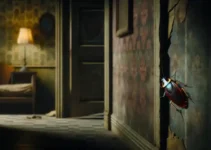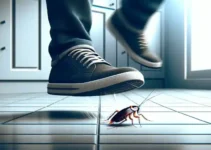Does dog food attract roaches? Almost any food will attract roaches, and your dog’s food tops the menu. So, to answer the question, dog food attracts roaches. But there are other things you need to know. Your dog’s food appealing to cockroaches also means any unprotected food exposes your dog’s health. Roaches are nefarious, and will also lurk around, such as in walls, knowing they’d take their feeding chances whenever your dog is served. Now, you need to know how to get rid of them so that your dog eats healthy, and will not risk eating roach droppings or the roach itself.
Does dog food attract roaches?
Any available food is merely an invitation to cockroaches to stop by for more. As a result, you’d be dealing with a roach infestation, which means you need to discourage these nefarious insects.
Perhaps, you didn’t, but you need to see your pet’s food as a roach magnet. When you merely leave dog food out for them to eat whenever they care to, you’re also giving roaches the opportunity to wobble into it.
Roaches love food rich in protein, which is present in your dog’s food. Their sensitive antennae help them to detect and trace your dog’s bowl to its specific location.
Unfortunately, roaches in your dog’s meal can be a health disaster, so you must take the proper measures to keep them away as much as you can.
Reasons roaches are attracted to dog’s food
a. Humidity
Humidity is one of the luring reasons roaches are attracted to your dog’s food. When you leave the food exposed to humidity or heat places, roaches will lurk around, since the position is convenient.
Besides, roaches thrive in humid areas or hot weather conditions. Thus, you need to keep the canine’s food in a safer place to discourage cockroaches.
b. Leaving food overnight
Leaving your dog’s food overnight will easily attract roaches to it. Roaches are nocturnal—they prefer to be active at night, while your dog is sleeping. As such, your canine’s bowl becomes all theirs for several hours of the night.
If this nightly food exposure continues, the nefarious cockroaches will lurk around, especially if the environment is moist and inhabitable for them.
c. Decomposing dog food
Cockroach infestation in your home could also be encouraged by decomposing dog foods, especially if you left them throughout the day.
Roaches generally find decaying food items particularly delicious. They are also attracted to strong smells, including compost or garbage.
The important measure is to protect your pet from ingesting cockroaches from their bowl meals. By getting rid of the roaches, you’re also able to eliminate the consequences of potential diseases resulting from roach ingestion by your dog.
How to keep roaches out of your dog food
You can’t introduce pesticides to your dog’s food—they’d ingest them, which is dangerous. Even less offensive solutions like diatomaceous earth and boric acid will cause your dog to get sick.
You need to keep cockroaches out of your dog’s food as a way to preserve their health. Generally, you want to be sure that the dog’s food is not openly and readily available to the roaches.
Clean up spills
If your dog spills food, make sure to clean up immediately. It’s usually only a matter of time before roaches find food crumbs on the floor leading them to the dog’s bowl.
Store food out of reach
Perhaps, you should consider keeping dog food off the ground in roach-free storage to discourage cockroaches. Leaving the food all day or overnight on the floor surface will quickly attract roaches to it.
You can store the food in a sealed container to prevent roaches from having easy access or any access at all.
Don’t leave dog food unsealed overnight
Roaches are nocturnal pests and will search every nook and cranny in your home for food. While you’re sleeping, they’d be feeding in your dog’s bowl, which is a food magnet to them. The solution is to store any leftovers in sealed bags overnight. You can also use airtight containers for pets if you have leftovers to keep.
Employ mild natural remedies
You need to bring in natural remedies that are dog food-safe to exterminate roaches—you won’t be using offensive repellants with high toxicity levels. Mild natural alternatives will safely roach, protecting your dog from the toxic agents.
You could use mint or lavender leaves to make a spray and dilute it with water. Fresh bay leave is another recommended alternative—make and spray fresh bay leaves just around where your dog feeds. Western Exterminator Company recommends pulverizing a handful of bay leaves into a powder and sprinkling it around the cockroach hotspots in your home, which would include the surrounding areas of your dog’s food.
If you must use commercial sprays, ensure to buy only organic insecticide that is marked pet-safe.
What if your dog eats a cockroach?
Dogs do eat cockroaches—it’s just a result of their high prey drive or keen desire to play or eat. In some cases, your dog may not have noticed the roach in its bowl while eating.
Understand that cockroaches are not naturally poisonous—they do not naturally pose a threat if your dog consumes them. In their natural state, roaches are not poisonous. Some cultures even eat roaches as a delicacy and as a normal staple food source, for example, in some parts of China, according to ABC News. Thus, your dog does not get instantly poisoned by eating a normal, healthy cockroach.
A roach in your dog’s food may carry bacteria such as salmonella, staphylococcus, and streptococcus, or harbor viruses such as the polio virus. Parasites it may also carry include Ascaris Trichuris, Capillaria, Toxocara, hookworm, and Eimeria.
You do not want to risk getting a cockroach in your dog’s system since you’re not sure if it’s healthy or not. Just make sure to contact a trained veterinarian immediately.
What if you’ve treated your home or workplace already? In this case, the cockroaches in your dog’s food become poisonous to your fluffy dogs. You don’t want your dog ingesting poisoned cockroaches or even roach bait traps, which can result in serious internal damage.
In general, if you think your dog has eaten roach-contaminated food, a roach, or poison, see the vet immediately. It’s not advisable to wait for any signs of vomiting, lethargy, pain, shivering, or uncoordinated gait before seeing the vet.
Conclusion
If your dog just ate roach-infested pet food, they need medical attention before it develops into a potentially detrimental health problem. Roaches are known disease and parasite carriers, but a healthy roach is not a problem. However, since you can’t tell a healthy roach from one with an infection, the odds are that your dog just ate an infected one.
Moreover, the roach may have come in contact with infestation treatments, which makes it poisonous for your dog. See a vet and make sure to contact your local pest exterminator if you suspect roach infestation.


